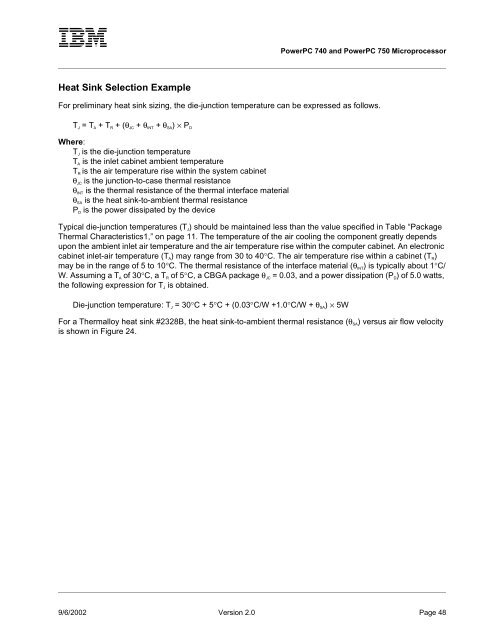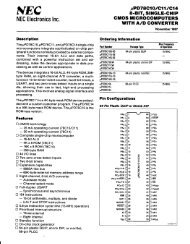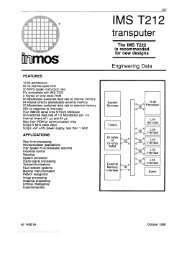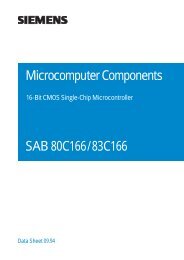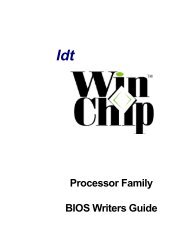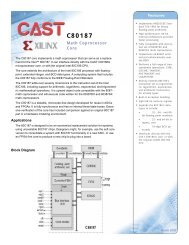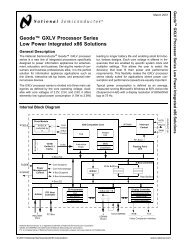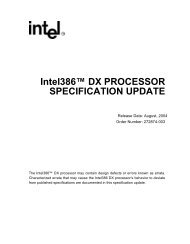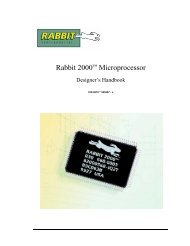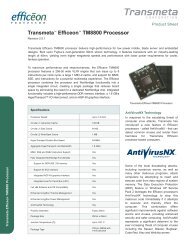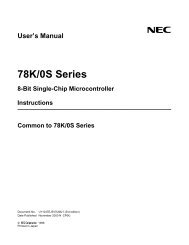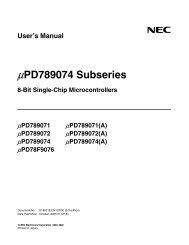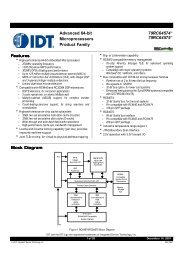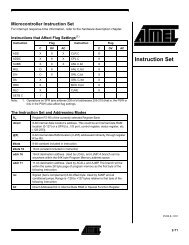PowerPC 740 and PowerPC 750 Microprocessor Datasheet - IBM
PowerPC 740 and PowerPC 750 Microprocessor Datasheet - IBM
PowerPC 740 and PowerPC 750 Microprocessor Datasheet - IBM
- No tags were found...
You also want an ePaper? Increase the reach of your titles
YUMPU automatically turns print PDFs into web optimized ePapers that Google loves.
<strong>PowerPC</strong> <strong>740</strong> <strong>and</strong> <strong>PowerPC</strong> <strong>750</strong> <strong>Microprocessor</strong>Heat Sink Selection ExampleFor preliminary heat sink sizing, the die-junction temperature can be expressed as follows.T J = T A + T R + (θ JC + θ INT + θ SA ) × P DWhere:T J is the die-junction temperatureT A is the inlet cabinet ambient temperatureT R is the air temperature rise within the system cabinetθ JC is the junction-to-case thermal resistanceθ INT is the thermal resistance of the thermal interface materialθ SA is the heat sink-to-ambient thermal resistanceP D is the power dissipated by the deviceTypical die-junction temperatures (T J ) should be maintained less than the value specified in Table “PackageThermal Characteristics1,” on page 11. The temperature of the air cooling the component greatly dependsupon the ambient inlet air temperature <strong>and</strong> the air temperature rise within the computer cabinet. An electroniccabinet inlet-air temperature (T A ) may range from 30 to 40°C. The air temperature rise within a cabinet (T R )may be in the range of 5 to 10°C. The thermal resistance of the interface material (θ INT ) is typically about 1°C/W. Assuming a T A of 30°C, a T R of 5°C, a CBGA package θ JC = 0.03, <strong>and</strong> a power dissipation (P D ) of 5.0 watts,the following expression for T J is obtained.Die-junction temperature: T J = 30°C + 5°C + (0.03°C/W +1.0°C/W + θ SA ) × 5WFor a Thermalloy heat sink #2328B, the heat sink-to-ambient thermal resistance (θ SA ) versus air flow velocityis shown in Figure 24.9/6/2002 Version 2.0 Page 48


